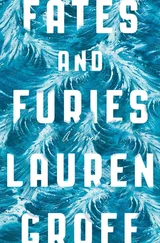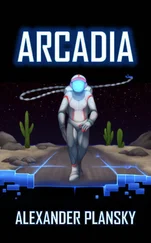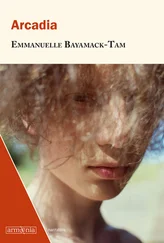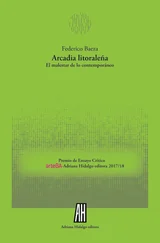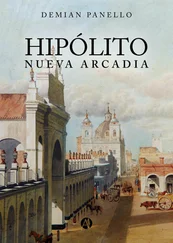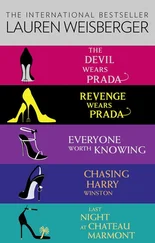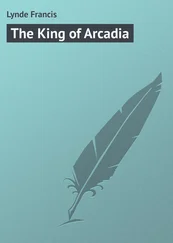Lauren Groff - Arcadia
Здесь есть возможность читать онлайн «Lauren Groff - Arcadia» весь текст электронной книги совершенно бесплатно (целиком полную версию без сокращений). В некоторых случаях можно слушать аудио, скачать через торрент в формате fb2 и присутствует краткое содержание. Год выпуска: 2012, Издательство: Hachette Books, Жанр: Современная проза, на английском языке. Описание произведения, (предисловие) а так же отзывы посетителей доступны на портале библиотеки ЛибКат.
- Название:Arcadia
- Автор:
- Издательство:Hachette Books
- Жанр:
- Год:2012
- ISBN:нет данных
- Рейтинг книги:3 / 5. Голосов: 1
-
Избранное:Добавить в избранное
- Отзывы:
-
Ваша оценка:
- 60
- 1
- 2
- 3
- 4
- 5
Arcadia: краткое содержание, описание и аннотация
Предлагаем к чтению аннотацию, описание, краткое содержание или предисловие (зависит от того, что написал сам автор книги «Arcadia»). Если вы не нашли необходимую информацию о книге — напишите в комментариях, мы постараемся отыскать её.
Arcadia — читать онлайн бесплатно полную книгу (весь текст) целиком
Ниже представлен текст книги, разбитый по страницам. Система сохранения места последней прочитанной страницы, позволяет с удобством читать онлайн бесплатно книгу «Arcadia», без необходимости каждый раз заново искать на чём Вы остановились. Поставьте закладку, и сможете в любой момент перейти на страницу, на которой закончили чтение.
Интервал:
Закладка:
It’s dead on, says Bit. Listen, he says, and then, feeling as if he is pushing against a current that is just about to dash him over a waterfall, he tells her about Hannah and Abe’s project, the Great Pot Plot, the cash, the relief that will be sure to come.
It’ll be all right, he says. After Cockaigne Day. Don’t worry. We’ll have enough then.
She looks at him, biting her thumbnail, and says nothing at all.
They come into Verda’s yard, the stone cottage, the cherry. Verda is out in the garden, tossing corn to her chickens. She frowns when she sees Helle and looks at Bit narrowly, her meaning clear: Another visitor? Don’t you know I choose to be alone?
He looks at her with hope in his face, and she sighs and says, Might as well come in.
They do. Helle and Verda sit stiffly across the table, sipping tea, studying each other through their eyelashes. The conversation is surface-bright: weather, Cockaigne Day, Bit. If he didn’t know Verda so well, he would say the visit was going swimmingly, but her nostrils have flared as if they smell something off, and her answers have become increasingly curt.
They stand to go, and Helle bends to pet Eustace on the floor, and Verda, uncharacteristically, reaches and pulls Bit to her. She smells good, like sun-dried clothes and Amish soap. She says in his ear, fast and low, Careful, Ridley. Most powerful people in the world are young, beautiful girls.
Then she releases him and shows them to the door.
Out in the day, Helle looks unsatisfied. They are halfway home when she says, I know she’s your friend, but. ., and she trails off. Later, she shivers and says, That whole time? I was imagining how I’d feel to be so old and so alone like her. I think I’d kill myself.
Oh, Helle, Bit says, choked.
She looks at him, and says, I’m just kidding, Bit. But her voice is heavy, and when she goes up to her room to take a nap, he can hardly bear to let the door close between them.
In the middle of the Photography Tutorial, Bit has a moment: there is the evening sun and the heft of the Leica in his hands, so right, so his, to him the most valuable thing in Arcadia. There are the other Tutorials in the courtyards, the young heads alongside older ones, and he feels, with a gathering of wonder, how this is exactly what makes Arcadia great: this attention to potential, this patience for the individual, the necessary space for the expansion of the soul; and he sees the way Helle darts glances at the glorious warm sky, the chipmunks chittering on the eaves of Arcadia House, her own dirt-crusted feet, how she sees Bit looking and smiles her rubber-band smile, and it fills him to overflowing. And when, at last, the children in the Kid Herd launch into a spirited version of “Tea for the Tillerman” with bongos and tambourines, it is all he can do to be cool, to not get up and dance like a holy fool filled with the ecstatic light of god, like the print Hiero showed them last week by his namesake Hieronymus Bosch, a garden where nude people gathered in mussel shells and fruit, spilled from organlike pink huts, rode joyously in a rodeo of pigs and leopards, let finches drop berries into their mouths, every person on the canvas filled with a quiet, green joy. Bit has to hold himself in and breathe in and out until the happiness returns to a safer distance, until it becomes a blanket of sun, of children, of calm, of Arcadia, and Bit is once again only one thread within the greater whole.
At supper, Bit watches Simon sidle up to Hannah and whisper. A bolt in the gut when Hannah flushes. She says, loudly enough to carry to Bit: All right, then. Dawn.
All night, he imagines Hannah vanishing. He imagines waking up to a world empty of her forever, that old fear from deepest childhood. Bit is at the front door when Hannah comes out, her step soft, her feet bare under her overalls. She sees him and murmurs, My knight in shining armor, and ruffles his hair.
The nitid knight of nighttime delight, he says to make her laugh, but she doesn’t.
Together they walk to the field. Simon meets them, pacing anxiously, where the sunflowers pour from the throat of the woods. Aztec Sun, Irish Eyes, Velvet Queen. His hair is wet and parted down the middle; he is wearing jeans so new they creak when he walks. He frowns when he sees Bit and looks at Hannah meaningfully, but she is examining a mosquito bite on her arm. Simon says, Oh, come on, and turns his back and strides off through the plants. They follow. Hannah’s hand grazes Bit’s, and Bit lets her hold it. The day is only a new shine on the furry leaves. In the center of the field, Simon’s work stands, a fist covered in tarps. The flowers are at shoulder level and shush as they walk through, and by the time they wend their way to the center, the sky has already flushed with light.
They stand before the sculpture for minutes, in silence. When Simon judges the light to be perfect, he goes around the back, and they hear a hatchet strike twice. The rope releases, the tarp falls like a skirt.
Bit laughs, but Hannah pinches his upper arm, quick and searing. She says, Simon, it’s wonderful. Simon looks at her, his eyes pools with stony bottoms.
What seemed to be a humble windmill, beginning to spin in the slight wind, reveals its parts to be more. The spokes are rifles, the heart the nose of a bomb. When Bit goes to touch the legs of the structure, they are sharp.
Swords to plowshares, Hannah says. Her cheeks are flushed.
Bit says in his manliest voice, Really? Did it have to be so literal?
Don’t be a teenager, Hannah hisses, and Bit is stung.
Simon ignores Bit, explains. On one of the Motor Pool’s scavenging missions up near Canada, Simon had found an abandoned automobile with a cache of rifles in the trunk. Old bootlegger, he thought, lost in the woods. That’s where the idea came from. Then in an army-navy store, he found the bomb nose, mounted like the head of a deer. The swords he’d made himself on the forge. It was supposed to be an embodiment of all that was great about Arcadia. The peace, the work, the simplicity.
It’s magnificent, Hannah says. It works?
It works, says Simon and flips a small lever, and the windmill spins and hums. There is a bitter tone to his voice when he says, In this blasted place, there is no use making something that doesn’t function. Even I know that.
Bit thinks of giving a gift of art, something he’d put his whole being into, and having it fall so terribly flat. For a brief spasm, his empathy for Simon floods the irritation, glazes the strange-looking windmill with a beauty born of Simon’s love.
Thank you, Hannah says, and Simon nods. He seems crestfallen. They walk back together. Hannah gives Simon a hug, and Bit finds himself gauging the length of the embrace, its force, the way Hannah doesn’t look Simon in the face when she pulls away. He thinks of Abe still sleeping, his legs shrunken under the sheets. Because of this, he escorts Hannah back to her small room. He waits until she knocks and Abe’s voice answers and she goes in, and only when she is safely back with Abe does the eel thrashing in his stomach swim away.
Bit and Hannah were awake long before dawn to cut and load the hemp into a pickup truck; now their hands are raw, their clothes steam with sweat in the chilly morning. In the deep blue minutes before sunrise, they hustle the flour sacks of bud and leaf into the Sugarshack and park the pickup they used back in its spot in the Motor Pool. When the Eatery doors open, they beg entrance, though it isn’t their shift, and sit, exhausted, over coffee. Eden stops by, pregnant for the eighth time, and whispers that there is an Emergency Council of Nine called for tonight in the Octagonal Barn. Bit watches her waddle away and, with a terrible sense of sorrow, sees the old, zaftig Eden superimposed over the one whose body has been flattened by the eight tiny steamrollers of her babies.
Читать дальшеИнтервал:
Закладка:
Похожие книги на «Arcadia»
Представляем Вашему вниманию похожие книги на «Arcadia» списком для выбора. Мы отобрали схожую по названию и смыслу литературу в надежде предоставить читателям больше вариантов отыскать новые, интересные, ещё непрочитанные произведения.
Обсуждение, отзывы о книге «Arcadia» и просто собственные мнения читателей. Оставьте ваши комментарии, напишите, что Вы думаете о произведении, его смысле или главных героях. Укажите что конкретно понравилось, а что нет, и почему Вы так считаете.
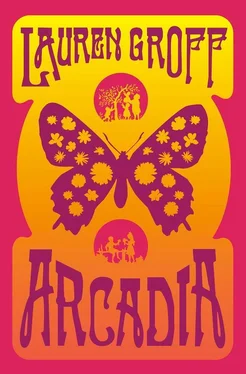
![Andrea Höst - In Arcadia [Touchstone - Extras]](/books/56405/andrea-host-in-arcadia-touchstone-extras-thumb.webp)

